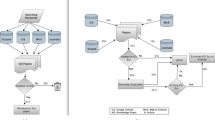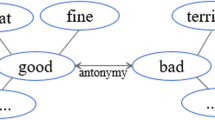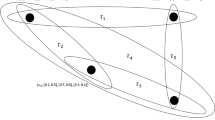Abstract
There are various real-world applications and areas, knowledge that handles with ambiguity, imperfect, or partial are difficult to capture. Such situations cause problems to discover new knowledge while dealing with decision-making and information retrieval. Ontologies are description-based logic but not able to handle the uncertain or incomplete knowledge in specific application domains. Therefore, it is very important to deal with uncertainty in ontologies. Moreover, we need to handle uncertainty for organizing the web data, so that machines can easily understand and retrieve the desired information efficiently and accurately. In this paper, we have identified various uncertainties in ontology/ies to achieve above objectives, based on different classification of ontology like intra-ontology, inter-ontology, and external ontology using different operations. Furthermore, we have carried out impact analysis of uncertainty using different context and situations to ontology and its operations for how and where uncertainties have to be represented and what semantics are considerable. In the literature, we have found that various researchers have been working on identifying the uncertainties in different domains of application like vague, inaccurate, missing, etc. Despite of identification of these uncertainties, we have also mapped the various situations and context related to ontology which is missing in the literature.






Similar content being viewed by others
References
Markman, A.B.: Knowledge Representation. Psychology Press, New York (2013)
Sowa, J.F. (ed.): Principles of Semantic Networks: Explorations in the Representation of Knowledge. Morgan Kaufmann, New York (2014)
Baader, B.F.: Logic-based knowledge representation. In: Broy, M., Denert, E. (eds.) Artificial Intelligence Today, pp. 13–41. Springer, Berlin (1999). https://doi.org/10.1007/3-540-48317-9_2
Mylopoulos, J., Levesque, H.: An overview of knowledge representation. GWAI-83 76, 143–157 (1983)
Barsalou, L.W.: Frames, concepts, and conceptual fields. Lawrence Erlbaum Associates, Inc (1992)
Guarino, N., Oberle, D., Staab, S.: What is an ontology? In: Staab, S., Studer, R. (eds.) Handbook on Ontologies, pp. 1–17. Springer, Berlin (2009)
Anand, S., Verma, A.: Development of ontology for smart hospital and implementation using uml and rdf. Int. J. Comput. Sci. Issues (IJCSI) 7(5), 206 (2010)
Hazman, M., El-Beltagy, S.R., Rafea, A.: A survey of ontology learning approaches. Int. J. Comput. Appl. 22(9), 36–43 (2011)
Sharma, A., Kumar, S.: Semantic web-based information retrieval models: a systematic survey. In: International Conference on Recent Developments in Science, Engineering and Technology, vol. 1230, pp. 204–222. Springer (2019)
Gruber, T.R.: A translation approach to portable ontology specifications. Knowl. Acquisition 5, 199–220 (1993)
Studer, R., Benjamins, V.R., Fensel, D.: Knowledge engineering: principles and methods. Data Knowl. Eng. 25(1–2), 161–197 (1998)
Lytvyn, V., Vysotska, V., Dosyn, D., Burov, Y.: Method for ontology content and structure optimization, provided by a weighted conceptual graph. Webology 15(2), 66–85 (2018)
Wang, Q., Pan, X., Huang, L., Zhang, B., Jiang, Z., Ji, H., Knight, K.: Describing a knowledge base. arXiv preprint arXiv:1809.01797 (2018)
Amrouch, S., Mostefai, S.: Survey on the literature of ontology mapping, alignment and merging. In: 2012 International Conference on Information Technology and e-Services, vol. 2012, pp. 1–5, IEEE (2012)
Rowe, W.D.: Understanding uncertainty. Risk Anal. 14(5), 743–750 (1994)
Walker, W..E., Harremoës, P., Rotmans, J., Van Der Sluijs, J..P., Van Asselt, M..B., Janssen, P., Krayer von Krauss, M..P.: Defining uncertainty: a conceptual basis for uncertainty management in model-based decision support. Integr. Assess. 4(1), 5–17 (2003)
Dragos, V.: Detection of contradictions by relation matching and uncertainty assessment. Proc. Comput. Sci. 112, 71–80 (2017)
Dragos, V.: An ontological analysis of uncertainty in soft data. In: Proceedings of the 16th International Conference on Information Fusion, pp. 1566–1573, IEEE (2013)
Jurado, K., Ludvigson, S.C., Ng, S.: Measuring uncertainty. Am. Econ. Rev. 105(3), 1177–1216 (2015)
Xu, X., Wu, Y., Chen, J.: Fuzzy fca based ontology mapping. In: 2010 First International Conference on Networking and Distributed Computing, vol. 2010, pp. 181–185, IEEE (2010)
Wang, P., Xu, B.: Debugging ontology mappings: a static approach. Comput. Inf. 27(1), 21–36 (2008)
Idoudi, R., Ettabaa, K.S., Hamrouni, K., Solaiman, B.: An evidence based approach for multiple similarity measures combining for ontology mapping. In: International Image Processing, Applications and Systems Conference, vol. 2014, pp. 1–6, IEEE (2014)
Liu, J., Zheng, B.-J., Luo, L.-M., Zhou, J.-S., Zhang, Y., Yu, Z.-T.: Ontology representation and mapping of common fuzzy knowledge. Neurocomputing 215, 184–195 (2016)
Vargas-Vera, M.: The implementation of DSSim: a multi-agent ontology mapping system. In: Information Retrieval and Management: Concepts, Methodologies, Tools, and Applications, vol. I, pp. 1217–1238. IGI Global (2018)
Ivanova, T.I.: Managing uncertainty in ontology mapping in e-learning context. In: 2019 International Conference on Information Technologies (InfoTech), vol. 2019, pp. 1–4, IEEE (2019)
Blasch, E.P., Dorion, É., Valin, P., Bossé, E.: Ontology alignment using relative entropy for semantic uncertainty analysis. In: Proceedings of the IEEE 2010 National Aerospace & Electronics Conference, vol. 2010, pp. 140–148, IEEE (2010)
Jan, S., Shah, I., Khan, I., Khan, F., Usman, M.: Similarity measures and their aggregation in ontology matching. Int. J. Comput. Sci. Telecommun. 3(5), 52–57 (2012)
Chowdhury, N.A., Dou, D.: Improving the accuracy of ontology alignment through ensemble fuzzy clustering. In: OTM Confederated International Conferences “On the Move to Meaningful Internet Systems”, vol. 7045, pp. 826–833. Springer (2011)
Truong, H.B., Duong, T.H., Nguyen, N.T.: A hybrid method for fuzzy ontology integration. Cybern. Syst. 44(2–3), 133–154 (2013)
Todorov, K., Hudelot, C., Popescu, A., Geibel, P.: Fuzzy ontology alignment using background knowledge. Internat J. Uncertain. Fuzziness Knowl.-Based Syst. 22(01), 75–112 (2014)
Idoudi, R., Ettabaa, K.S., Solaiman, B., Hamrouni, K.: Ontology knowledge mining for ontology alignment. Int. J. Comput. Intell. Syst. 9(5), 876–887 (2016)
Niepert, M., Meilicke, C., Stuckenschmidt, H.: A probabilistic-logical framework for ontology matching. In: Twenty-Fourth AAAI Conference on Artificial Intelligence, vol. 24, pp. 1413–1418 (2010)
Castano, S., Ferrara, A., Montanelli, S., Varese, G.: Ontology and instance matching. In: Paliouras, G., Spyropoulos, C.D., Tsatsaronis, G. (eds.) Knowledge-Driven Multimedia Information Extraction and Ontology Evolution, pp. 167–195. Springer (2011)
Albagli, S., Ben-Eliyahu-Zohary, R., Shimony, S.E.: Markov network based ontology matching. J. Comput. Syst. Sci. 78(1), 105–118 (2012)
Liu, L., Yang, F., Zhang, P., Wu, J.-Y., Hu, L.: Svm-based ontology matching approach. Int. J. Autom. Comput. 9(3), 306–314 (2012)
Cui, K., Ling, X.-H., Yao, W.-S., Fu, Y.-C.: An ontology matching algorithm based on Markov network. Comput. Engineering 11, 209–213 (2013)
Zhang, Y., Panangadan, A., Prasanna, V.K.: Ufom: Unified fuzzy ontology matching. In: Proceedings of the 2014 IEEE 15th International Conference on Information Reuse and Integration (IEEE IRI 2014), vol. 2014, pp. 787–794. IEEE (2014)
Li, C., Zhao, P., Wu, J., Cui, Z.: Anatomy ontology matching using Markov logic networks. Scientifica, vol. 2016, pp. 1–7 (2016)
Krishnamurthy, S., Janardanan, A., Akoramurthy, B.: Rough set based ontology matching. Int. J. Rough Sets Data Anal. (IJRSDA) 5(2), 46–68 (2018)
Lukasiewicz, T., Straccia, U.: Managing uncertainty and vagueness in description logics for the semantic web. J. Web Semant. 6(4), 291–308 (2008)
Sirin, E., Parsia, B., Grau, B.C., Kalyanpur, A., Katz, Y.: Pellet: a practical owl-dl reasoner. J. Web Semant. 5(2), 51–53 (2007)
Khan, J.A., Kumar, S.: Owl, rdf, rdfs inference derivation using jena semantic framework & pellet reasoner. In: 2014 International Conference on Advances in Engineering & Technology Research (ICAETR-2014), vol. 2014, pp. 1–8. IEEE (2014)
Zhang, X., Xiao, G., Lin, Z.: A tableau algorithm for handling inconsistency in owl. In: European Semantic Web Conference, vol. 5554, pp. 399–413. Springer (2009)
Zhang, S., Sun, Y., Peng, Y., Wang, X., et al.: A practical tool for uncertainty in owl ontologies. In: Proc. 10th IASTED Int. Conf, vol. 674, p. 235 (2010)
Pührer, J., Heymans, S., Eiter, T.: Dealing with inconsistency when combining ontologies and rules using dl-programs. In: Extended Semantic Web Conference, vol. 6088, pp. 183–197. Springer (2010)
Töpper, G., Knuth, M., Sack, H.: Dbpedia ontology enrichment for inconsistency detection. In: Proceedings of the 8th International Conference on Semantic Systems, vol. 8, pp. 33–40 (2012)
Sheng, Z., Wang, X., Shi, H., Feng, Z.: Checking and handling inconsistency of dbpedia. In: International Conference on Web Information Systems and Mining, vol. 7529, pp. 480–488. Springer (2012)
Li, D., Lin, Y., Huang, H., Tian, X.: Measuring ontology inconsistency based on Dempster-Shafer theory. J. Comput. Res. Dev. 50(3), 559 (2013)
Bienvenu, M., Bourgaux, C.: Inconsistency-tolerant querying of description logic knowledge bases. In: Reasoning Web International Summer School, vol. 9885, pp. 156–202. Springer (2016)
Lam, J.S.C., Sleeman, D., Pan, J.Z., Vasconcelos, W.: A fine-grained approach to resolving unsatisfiable ontologies. J. Data Semant. 4900, 62–95 (2008)
Fu, X., Zhang, Y., Qi, G.: A graph-based approach to ontology debugging in dl-lite. In: Joint International Semantic Technology Conference, pp. 33–46. Springer (2014)
Fu, X., Zhang, Y., Qi, G.: Grod: Graph-based ontology debugging system. In: Chinese Semantic Web and Web Science Conference, pp. 87–94. Springer (2014)
Kalyanpur, A., Parsia, B., Sirin, E., Cuenca-Grau, B.: Repairing unsatisfiable concepts in owl ontologies. In: European Semantic Web Conference, vol. 4011, pp. 170–184. Springer (2006)
Ji, Q., Gao, Z., Huang, Z., Zhu, M.: Semantic precision and recall for evaluating incoherent ontology mappings. In: International Conference on Active Media Technology, vol. 7669, pp. 338–347. Springer (2012)
Schlobach, S., Huang, Z., Cornet, R., Van Harmelen, F.: Debugging incoherent terminologies. J. Autom. Reason. 39(3), 317–349 (2007)
Qi, G., Hunter, A.: Measuring incoherence in description logic-based ontologies. Semant. Web 4825, 381–394 (2007)
Paulheim, H.: Knowledge graph refinement: A survey of approaches and evaluation methods. Semant. Web 8(3), 489–508 (2017)
Lassila, O., Swick, R.R., et al.: Resource description framework (rdf) model and syntax specification (1998)
Manola, F., Miller, E., McBride, B., et al.: RDF primer. W3C Recommen. 10(1–107), 6 (2004)
Beckett, D.: RDF/xml syntax specification w3c recommendation. http://www.w3.org/TR/rdf-syntax-grammar/ (2004). Accessed 30 Jan 2014
Kumar, N., Kumar, S.: Querying RDF and OWL data source using sparql. In: 2013 Fourth International Conference on Computing, Communications and Networking Technologies (ICCCNT), vol. 2013, pp. 1–6. IEEE (2013)
Yang, Y., Calmet, J.: Ontobayes: An ontology-driven uncertainty model. In: International Conference on Computational Intelligence for Modelling, Control and Automation and International Conference on Intelligent Agents, Web Technologies and Internet Commerce (CIMCA-IAWTIC’06), vol. 1, pp. 457–463. IEEE (2005)
Ding, Z., Peng, Y., Pan, R.: Bayesowl: Uncertainty modeling in semantic web ontologies. In: Ma, Z. (ed.) Soft Computing in Ontologies and Semantic Web, vol. 204, pp. 3–29. Springer, Berlin (2006). https://doi.org/10.1007/978-3-540-33473-6_1
Keskisärkkä, R., Blomqvist, E., Lind, L., Hartig, O.: Capturing and querying uncertainty in rdf stream processing. In: Keet, C.M., Dumontier, M. (eds.) International Conference on Knowledge Engineering and Knowledge Management, pp. 37–53. Springer (2020)
Abidi, A., Tobji, M.A.B., Hadjali, A., Yaghlane, B.B.: A general framework for querying possibilistic rdf data. In: 2018 IEEE 30th International Conference on Tools with Artificial Intelligence (ICTAI), vol. 30, pp. 158–162. IEEE (2018)
Li, G., Yan, L., Ma, Z.: Pattern match query over fuzzy rdf graph. Knowl.-Based Syst. 165, 460–473 (2019)
Lian, X., Chen, L.: Efficient query answering in probabilistic rdf graphs. In: Proceedings of the 2011 ACM SIGMOD International Conference on Management of Data, vol. 11, pp. 157–168 (2011)
Zhao, L., Munne, R.F., Kertkeidkachorn, N., Ichise, R.: Missing rdf triples detection and correction in knowledge graphs. In: Joint International Semantic Technology Conference, pp. 164–180. Springer (2017)
Fleischhacker, D., Völker, J., Stuckenschmidt, H.: Mining rdf data for property axioms. In: OTM Confederated International Conferences “On the Move to Meaningful Internet Systems”, pp. 718–735. Springer (2012)
Kellou-Menouer, K., Kedad, Z.: Discovering types in rdf datasets. In: European Semantic Web Conference, vol. 9341, pp. 77–81. Springer (2015)
Zhang, D.: High-speed train control system big data analysis based on the fuzzy rdf model and uncertain reasoning. Int. J. Comput. Commun. Control 12(4), 577–591 (2017)
Kumar, S., Singh, M., De, A.: Owl-based ontology indexing and retrieving algorithms for semantic search engine. In: 2012 7th International Conference on Computing and Convergence Technology (ICCCT), pp. 1135–1140. IEEE (2012)
Hartmann, J., Sure, Y., Haase, P., Palma, R., Suarez-Figueroa, M.: Omv–ontology metadata vocabulary. In: ISWC, vol. 3729. Citeseer (2005)
Maedche, A., Zacharias, V.: Clustering ontology-based metadata in the semantic web. In: European Conference on Principles of Data Mining and Knowledge Discovery, vol. 2431, pp. 348–360. Springer (2002)
Author information
Authors and Affiliations
Corresponding author
Additional information
Publisher's Note
Springer Nature remains neutral with regard to jurisdictional claims in published maps and institutional affiliations.
About this article
Cite this article
Anand, S.K., Kumar, S. Uncertainty Analysis in Ontology-Based Knowledge Representation. New Gener. Comput. 40, 339–376 (2022). https://doi.org/10.1007/s00354-022-00162-6
Received:
Accepted:
Published:
Issue Date:
DOI: https://doi.org/10.1007/s00354-022-00162-6




